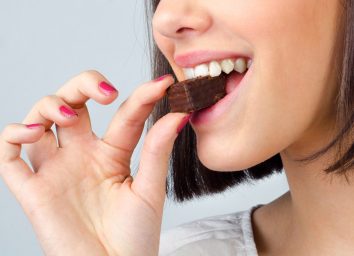9 Weight Loss Tips That Shouldn't Work, But Do
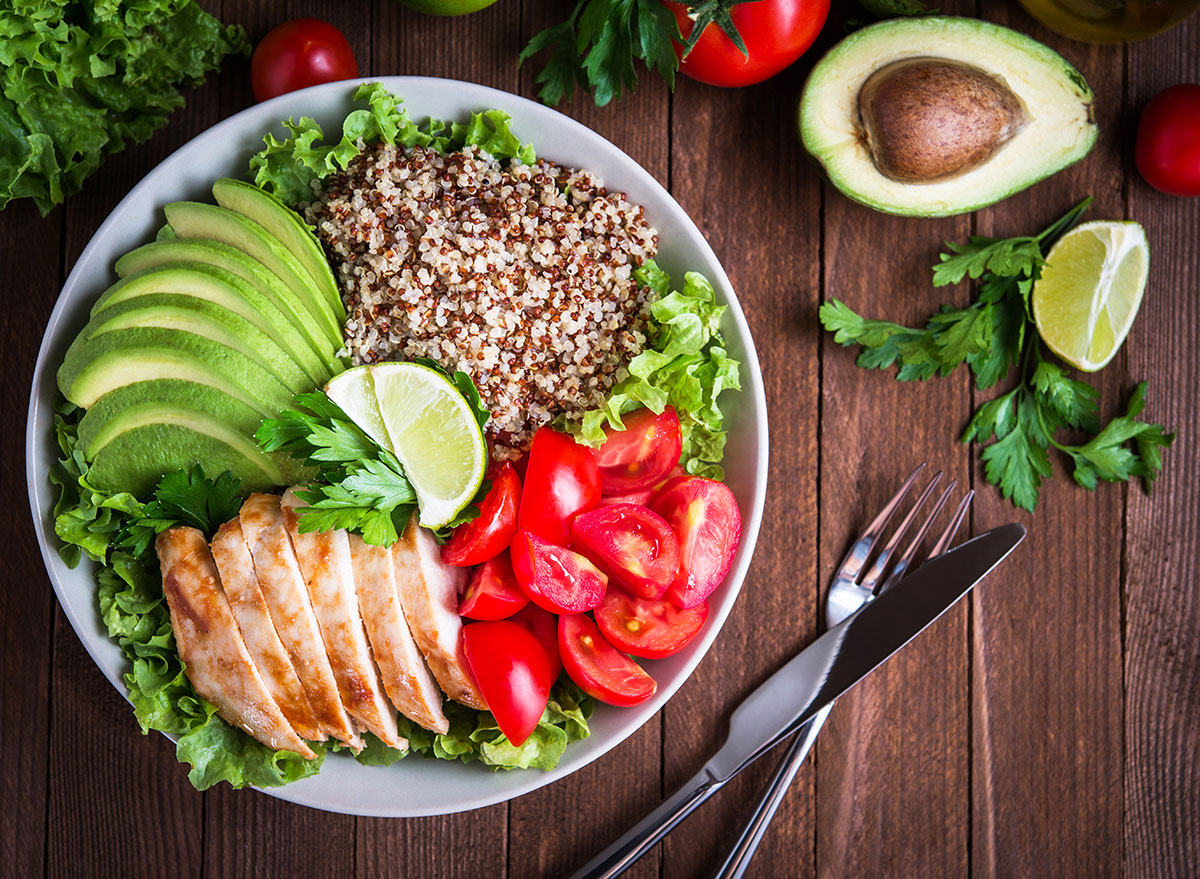
Restricting yourself from eating foods and counting every single calorie till your face turns blue? Sorry, folks. That's just not how weight loss works. In fact, restricting yourself and giving in to toxic diet culture has never been the solution for sustainable long-term weight loss—even science says so.
So what does work for weight loss? While you likely imagine food restriction and eating bland food is the solution to losing weight, in reality, the actual journey to sustainable weight loss is a lot more freeing (and surprising) than that. What you think "shouldn't" work actually does, so it's time to get rid of that toxic dieting mindset once and for all!
Here are a few of the weight loss tips that "shouldn't work" but actually do, straight from registered dietitians who have seen this happen before. Keep these tips in mind the next time you find yourself listening to toxic dieting beliefs, and let yourself enjoy eating all kinds of foods in your diet. And why not whip up one of these 100 Easiest Recipes You Can Make!
Eat more to lose weight!
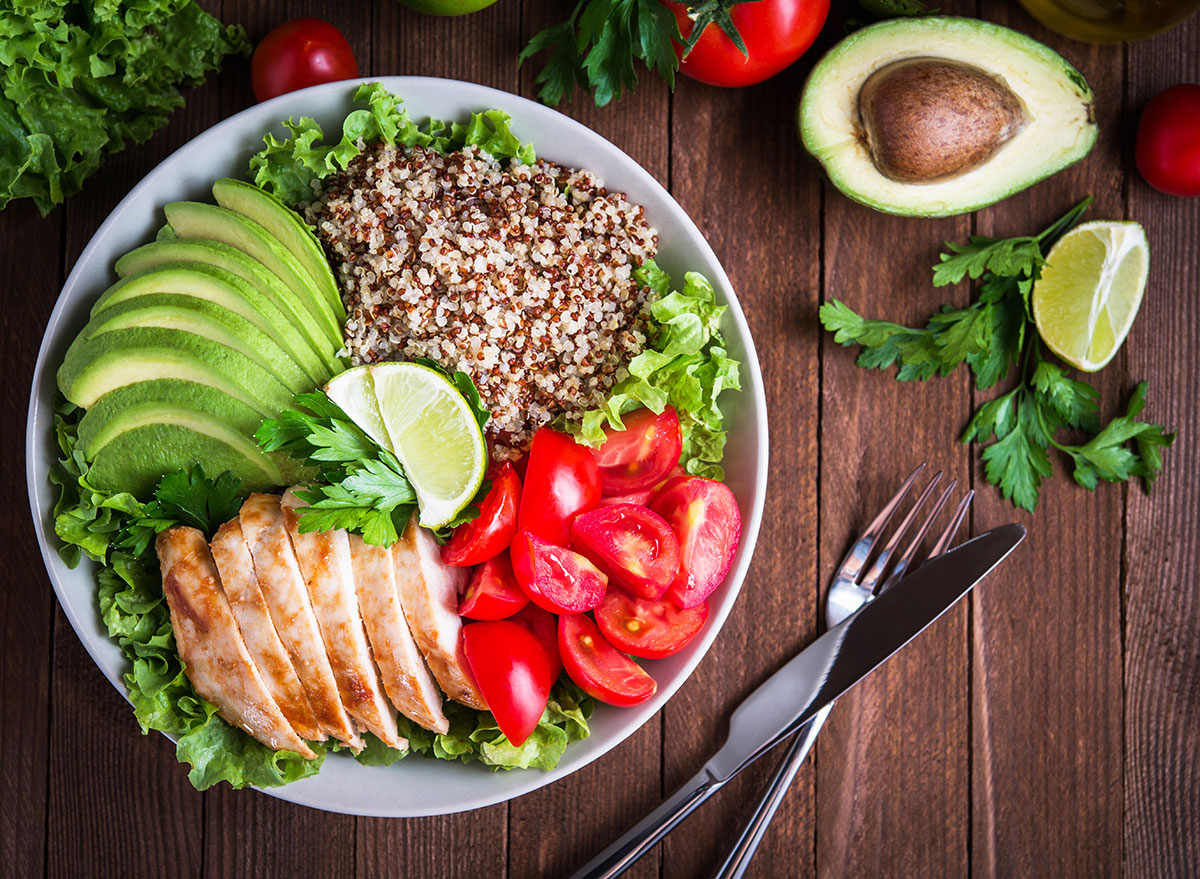
Think you need to be eating less to lose weight? Think again! In fact, according to the National Institute of Aging, food restriction hasn't actually been scientifically proven to work for weight loss long term. Plus, it can even slow down your metabolism because your body is trying to conserve energy for later—making it harder to lose weight, according to the UK National Health Service.
"While portion control is super important and is my specialty, practicing portion control does not mean you have to eat tiny portions," says Lisa Young, PhD, RDN, author of Finally Full, Finally Slim. "In fact, oftentimes, you could enjoy more to lose weight. Fruits and vegetables are high in fiber as well as vitamins and minerals and can help you to feel full. So, the more the better!"
"No one got fat from bananas and carrots so don't worry about the 'sugar' content," says Young. "Also, sometimes it's best to create the perfect pair for a satisfying snack. Adding a teaspoon or two to an apple is often more filling than just having the fruit. Having a 1/4 cup of hummus along with your veggies will keep you full longer which will ultimately help you lose weight. It's not just about the calories—it's about enjoying foods that are healthy as well as filling." Here's What To Eat in a Day To Drive the Most Weight Loss.
Get even more healthy tips straight to your inbox by signing up for our newsletter!
Don't skimp on fat, add it!
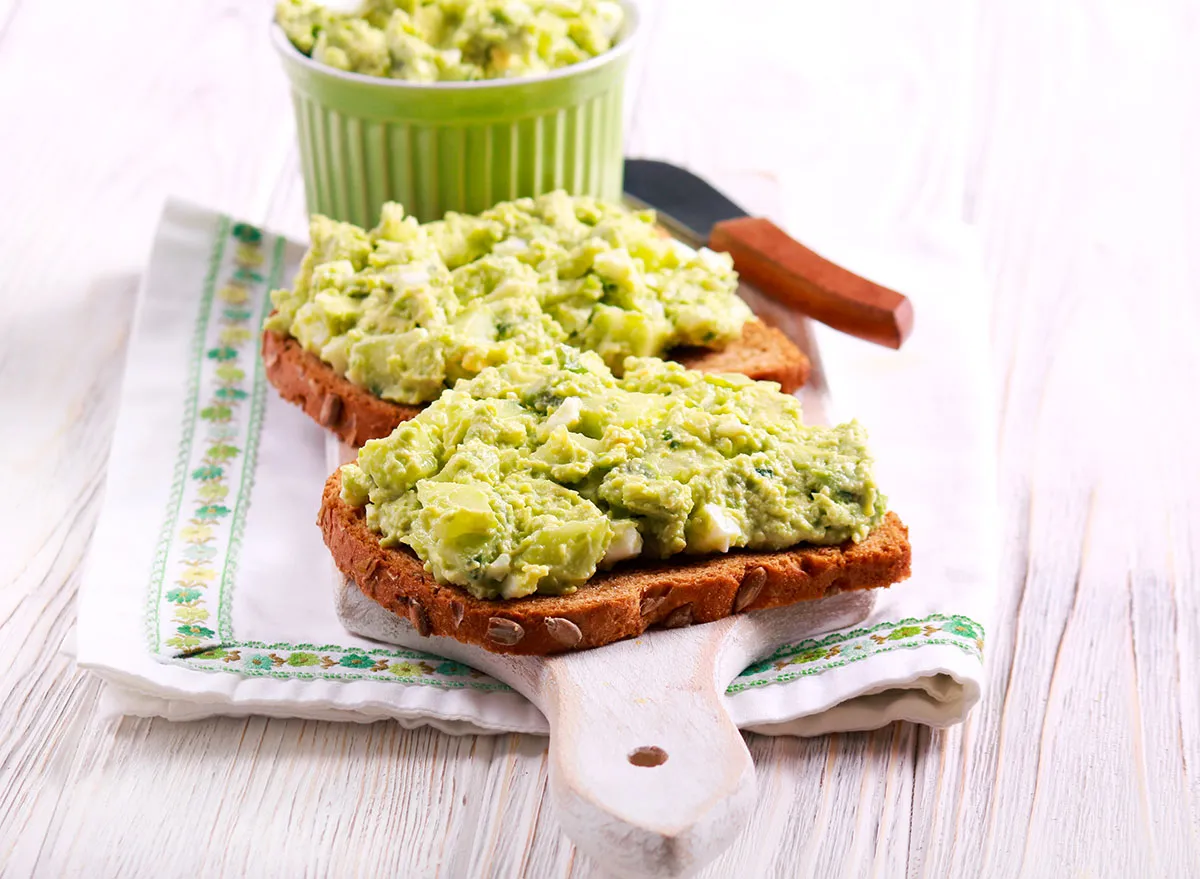
Contrary to popular belief, eating fat does not make you fat. There are quite a few fatty foods that are actually healthy for you and are even considered an essential part of a healthy diet. The types of fats you find in foods such as avocados, nut butter, fish, and even olive oil, can actually help slow down digestion and keep you feeling fuller for longer.
"So often people wanting to lose weight cut out fat to lose weight—unless they go on keto and that is a completely different problem," says Young. "Even though fat has more calories than protein and carbs, it is filling so you ultimately eat less. So, enjoy a handful of nuts as a snack to lose weight."
Here are 20 Healthy Fat Foods That Won't Make You Fat.
Incorporate resistant starches into your diet.

Yes, eat carbs. Carbs are great for your body—especially complex carbohydrates that are full of dietary fiber! Resistant starches are some of the best carbs you can have, which are full of fiber and keep you feeling full.
"Adding in prebiotic resistant starch-rich foods, such as green banana flour, resistant potato starch, uncooked oats, legumes and lentils, and even cashew nuts, have been shown to both help you feel fuller for longer, reduce your appetite at your following meal, as well as help your cells become more responsive to insulin—meaning you don't need to have as much circulating insulin in your blood in order to regulate your blood sugar levels, which otherwise would play a role in also promoting fat storage," says Kara Landau, RD and Founder at Uplift Food.
To incorporate more resistant starches into your diet, Landau recommends eating overnight oats (because the oatmeal is uncooked, leaving the resistant starch) or even smoothies boosted with green banana flour.
Change your mindset.

While we tend to always associate weight loss and healthy living with our physical bodies (weight loss, getting slim, working out, etc.), being healthy also requires a major positive shift in our mindset—and getting rid of the mindset that we need to restrict our eating.
"Instead of focusing on your new way of eating as 'restrictive,' focus on creating a structure for yourself," Dr. Rachel Paul, PhD, RD from CollegeNutritionist.com. "You create your own structure—no food is 'bad' or 'off limits.' Think about and consciously decide what foods, in what portions, will keep you both emotionally and physically satisfied. It's 100% okay for this to be a trial and error process."
Skip the juice cleanse.
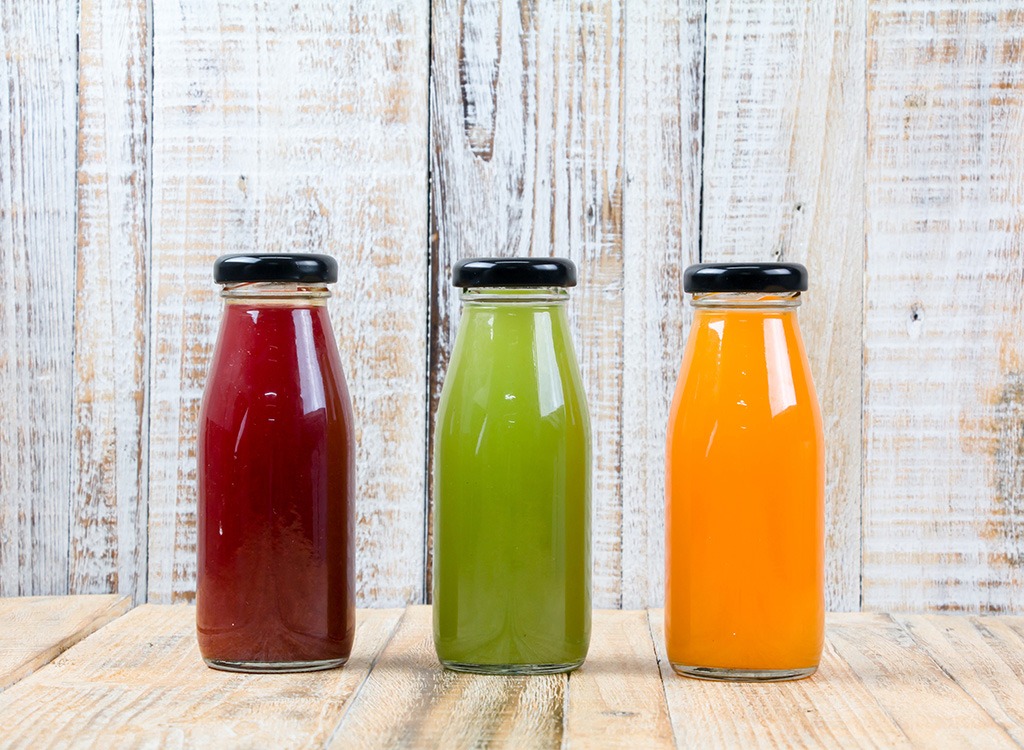
News flash: Juice cleanses don't work.
"Juice cleanses are often more harmful than helpful when it comes to weight loss," says Mackenzie Burgess, RDN, registered dietitian nutritionist and recipe developer at Cheerful Choices. "While the fruits and vegetables blended into juices have important vitamins and minerals, the juice itself is all quick-absorbing carbohydrates with little to no fiber or protein. The result? A temporary burst of energy and short-term satiety that will have you craving more food soon after."
Want to know a better solution for cleansing your body? It's as simple as pouring yourself a glass of water.
Drink lots of water.

"One of the biggest factors in elevating your metabolism and helping you lose weight is staying hydrated," says Megan Byrd, RD from The Oregon Dietitian. "By drinking enough water during the day, you essentially fuel your body's metabolism and help increase your energy level at the same time! Even a slight drop in hydration has been shown to lower your metabolism all day long. Start your morning with a glass of water, and continue to drink water throughout the day to get the maximum benefits!
Here's How to Make Sure You're Drinking Enough Water.
Fit all food groups in proper portions.
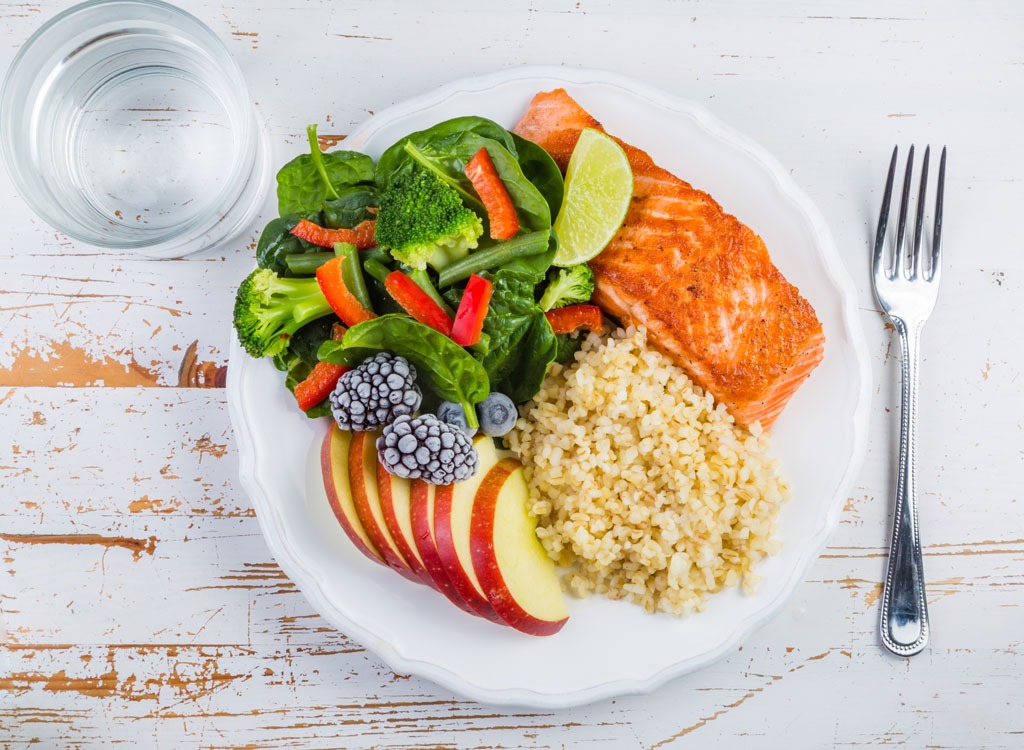
We weren't kidding when we said you can eat all kinds of food in your diet and still lose weight. It's all about finding ways to fit it into an overall healthy lifestyle.
"Some surprising weight loss tips that actually work are eating foods with a balance of food groups in reasonable portion sizes and keeping your eating times to about 3 to 5 hours apart (on average)," Ricci-Lee Hotz, MS, RDN at A Taste of Health and Expert at Testing.com. "This allows you to never feel too hungry or too full. In addition, by just including variety in your eating and utilizing an 'all foods fit' approach, you can include the foods that you enjoy most without feeling restricted while still losing weight which can help with your ability to maintain your lifestyle changes long-term."
Get good sleep.

Sleep for weight loss? Actually, yes. According to the journal Annals of Internal Medicine, not getting enough sleep actually resulted in a reduction of weight loss in fat—up to 55%!
Jamie Feit, MS, RD and Expert at Testing.com, says getting at least 7 to 8 hours of sleep a night is "extremely important [to] maintain weight loss." Along with sleep, proper hydration and eating more "vegetables, fruits, whole grains, and lean proteins" will get you the results you want over time.
Here are the 40 Best and Worst Foods to Eat Before Sleep.
Don't be afraid of high-calorie foods.
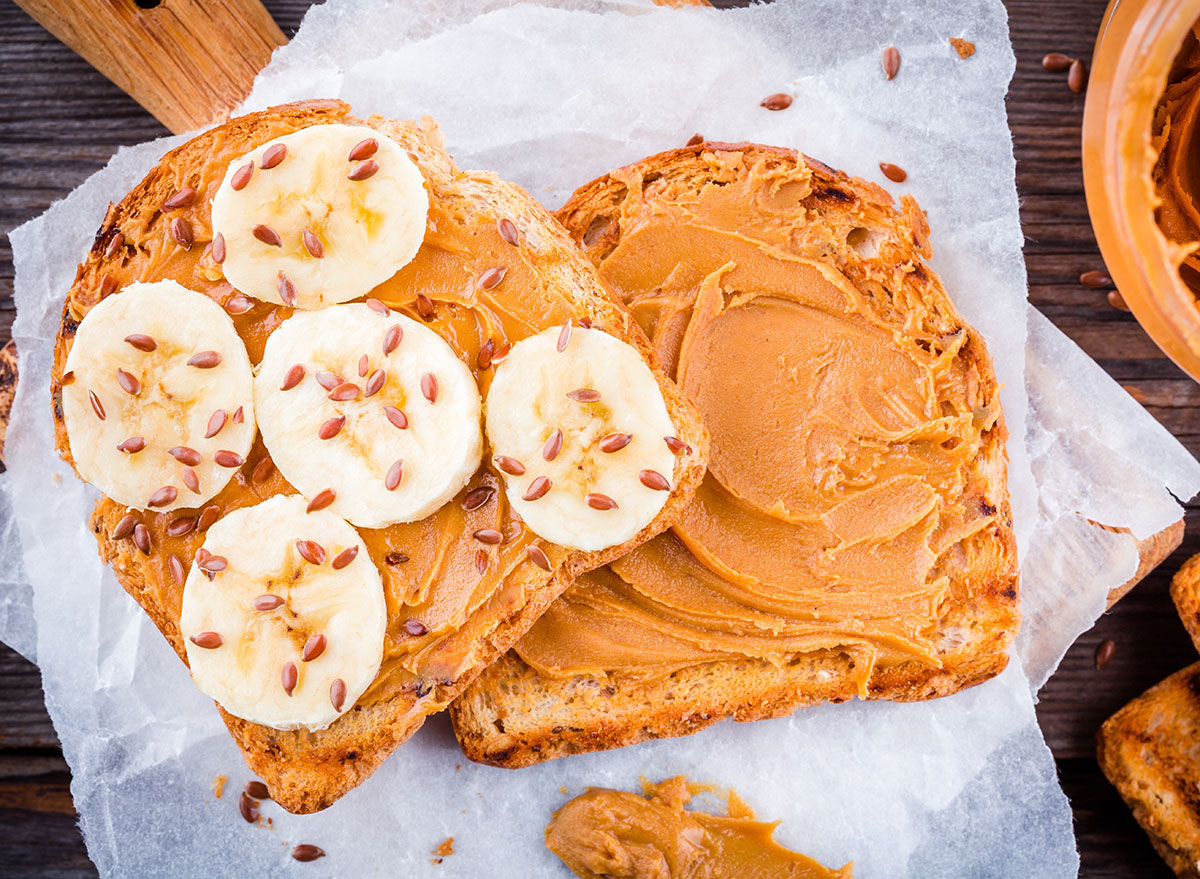
"Oftentimes people look to the lowest calorie foods to lose weight, when the truth is, that while typically a little higher in calories, protein, and healthy fats help you get full faster and stay full longer," says Amy Goodson, MS, RD, CSSD, LD, author of The Sports Nutrition Playbook, and owner of RD Career Jumpstart. "Thus, they can help you feel more satisfied with less food. Now, you still have to watch your portion sizes of those foods, but a little bit of nuts, peanut butter, cheese, avocado, etc. might actually help your weight loss goals! When you feel satisfied after meals and snacks, you are less likely to go looking for other food."
All in all, finding ways to incorporate all the foods you love and never restricting yourself seems to be the key elements to weight loss. If you're incorporating these main elements of a healthy diet into all of your meals, you'll be feeling fuller—and more satisfied—after every meal without feeling like you restricted yourself at all.
Read more about healthy weight loss:
The 9 Most Effective Weight Loss Tips for 2022, According to Experts
People Who Lost 20+ Pounds Swear By These 13 Weight Loss Tips
